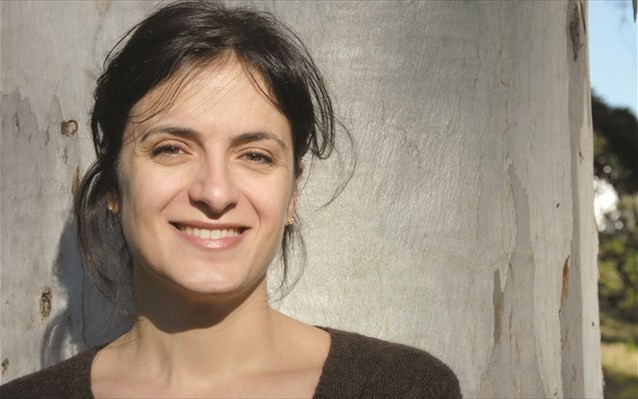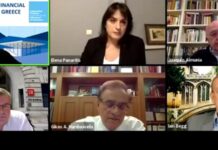Shermer coins the phrase “Panaritis’ Panacea” which refers to Elena Panaritis’ groundbreaking work in Peru, which lends empirical evidence to the direct relationship between sound property rights markets and broad-based prosperity. More importantly, her achievement in transforming informal real estate and practices in Peru suggests that property rights are not prerogative of rich nations or attributes of fully-developed societies. In other words, property rights and the corresponding norms, contracts, and institutions that create and apply them are fundamental pre-requisite for economic growth and wealth-generation.
While the key ingredients to successful socio-economic development are hardly a mystery, the primacy of property rights markets and institutions remains understated and misunderstood. Michael Shermer restores their importance by zeroing on Ms. Panaritis’ pioneering work in Peru.
How do you turn a 3rd-world developing nation into a 1st-world developed nation? It actually isn’t that hard.
In fact, it is so simple it can be explained in a blog-length essay. You need twelve conditions. I call them the Developing Dirty Dozen:
1. Property rights.
2. The rule of law.
3. Economic stability through a secure and trustworthy banking and monetary system.
4. A reliable infrastructure and the freedom to move about the country.
5. Freedom of speech and the press.
6. Freedom of association.
7. Mass education.
8. Protection of civil liberties.
9. A robust military for protection of liberties from attacks by other states.
10. A potent police force for protection of freedoms from attacks by other people within the state.
11. A viable legislative system for establishing fair and just laws.
12. An effective judicial system for the equitable enforcement of those fair and just laws.
Of course, we should remember what the sage pop philosopher Yogi Berra once said: “In theory, there is no difference between theory and practice. In practice there is.” Let’s call this Yogi’s Maxim. In theory, just implement the Developing Dirty Dozen. In practice, this might not be so easy. I recommend starting with just the first one: property rights. And the playbook on how to do so is already written: Prosperity Unbound: Building Property Markets with Trust (Palgrave Macmillan, 2007) by former World Bank economist Elena Panaritis, now working with developing nations around the world to build trust through property rights.
Panaritis explains how to change informal property into formal property, illiquid property into liquid property, and un-real estate into real estate. Presto-chango. It’s like magic. Property = Prosperity. Call it Panaritis’s Panacea.
Pioneered with pilot programs in Peru, Panaritis explains how to make property real and investments secure through property rights enforced through law. Unfortunately, there are plenty of other places to test this theory: about 70% of the world’s population, or about 4 billion people, are sitting on roughly $9 trillion in illiquid property. By “illiquid,” Panaritis means that the property can be lost or taken away without compensation, and it has little to no value as an investment tool outside of immediate bartering for goods and services needed at the moment.
Panaritis makes a distinction between “the haves and the have-nots,” but not as the phrase is customarily employed. What she means is those who have property rights and the security of their finances and investments, and those who do not. This difference is what, in the long run, creates a wealth or income disparity.
By “un-real estate,” Panaritis means that even if there is property you can see, if it is illiquid it means that you cannot use it to secure investments in your future, and thus you have no secure future and so your real estate is unreal. A houseboat on a river Southeast Asia is the epitome of informal property: just a family on a boat floating on a river, so precarious that it likely won’t last a single generation. How do you build a future on such an unstable foundation?
The lack of formal property rights leads to numerous economic distortions: distorted valuations up and down, distressed property markets, illiquidity of savings, limited labor mobility, weak capital markets, and limited investment in infrastructure such as utilities, energy, and telecommunications. In Ecuador, for example, having passed through the country many times on my way to the Galapagos Islands, I noted that Ecuadorians largely skipped the land-line stage on the way to cell phones. Establishing a land-line telephone infrastructure was the responsibility of the government, which they did with their usual corrupt ineptitude, leading the developing free market of cell phone technology to sweep in and displace the old with the new almost overnight. Fortunately, the Ecuadorian government was prescient enough to secure the property rights of cell phone carriers in their country, and a cell phone as property can fit in your pocket!
Without property rights, in addition to economic distortions there are social distortions: enduring inequalities, violence, corruption, criminality, child labor, and social discontent, especially among women and minorities, who have the least control of their property. As well, there are environmental distortions such as land quality degradation and poor waste management.
The solution? Simple: transform property from illiquid to liquid, or from un-real estate to real estate. Property = Prosperity. Panaritis’s Panacea. Case in point: In Peru, Panaritis worked with a woman named Margarita, a seamstress whose labor was valued in 1990 at $80/month, but who is today worth thousands of dollars a month. How did this happen? Untangling property rights and removing the bureaucratic red tape that it takes to own your own business, by reducing the number of government agencies from 14 to 2, by reducing the time it takes to obtain a license to own your own business from 7 years to 2 days, and the cost from $7,000 to $14! Now that is change we can believe in!
Can it work anywhere? Of course, as Panaritis explains:
The problem of “unreal estate” is global, but its solution local, and it can lead to unbound prosperity. The approach worked in Peru and it can be repeated elsewhere. Done right, institutional reform of property rights can reduce risk, ambiguity, costs of transactions and create new possibilities for those who hold assets informally by turning them liquid. In such cases, immovable property that once had little formal exchange value is transformed to a marketable asset. What seemed “unreal” becomes real.
Basically, once you have set up a system of establishing property rights, a rule of law to enforce those rights, and a judicial system to settle property rights disputes, everything else will fall into place and prosperity will prosper (with the caveat, of course, of remembering Yogi’s Maxim). This is, in practice, what David Hume meant in principle: “Any person ought to have the right to enjoy the fruits of his own work.”
###
Please read Michael Shermer’s blog posting on “Build a 1st-World Country (in 12 easy steps)” and support his publication “The Skeptic” (Skeptic.com).
Contents copyright © Michael Shermer.
Michael Shermer is the publisher of Skeptic magazine, a monthly columnist for Scientific American, a professor in the School of Politics and Economics at Claremont Graduate University, and the author of The Mind of the Market (Times Books). Contact: [email protected]



